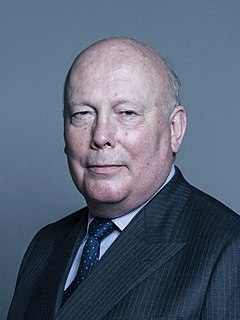A Quote by Ellen Potter
Give that man a Pixy Stix," Haddie said. "A what?" Lucia asked. "Hold on." She left then returned a moment later with a handful of colorful straws, one of which she threw at Max like a dart. He caught it in midair. That impressed Haddie and she tossed him another, just to see if he could do it again. He fumbled that one.
Related Quotes
Don't drop him," said Peter's mother to his father. "Don't you dare drop him." She was laughing. "I will not," said his father. "I could not." For he is Peter Augustus Duchene, and he will always return to me. Again and again, Peter's father threw him up in the air. Again and again, Peter felt himself suspended in nothingness for a moment, just a moment, and then he was pulled back, returned to the sweetness of the earth and the warmth of his father's waiting arms. "See?" said his father to his mother. "Do you see how he always comes back to me?
She was in a terrible marriage and she couldn't talk to anyone. He used to hit her, and in the beginning she told him that if it ever happened again, she would leave him. He swore that it wouldn't and she believed him. But it only got worse after that, like when his dinner was cold, or when she mentioned that she'd visited with one of the neighbors who was walking by with his dog. She just chatted with him, but that night, her husband threw her into a mirror.
What does it feel like?” he asked. “What does what feel like?” Peter thought for a moment. “Being at the top.” Josie reached across him for another packet of material and fed it into the stapler. She did three of these, and Peter was certain that she was going to ignore him, but then she spoke. “Like if you take one wrong step,” she said, “you’re going to fall.
She had been so wicked that in all her life she had done only one good deed-given an onion to a beggar. So she went to hell. As she lay in torment she saw the onion, lowered down from heaven by an angel. She caught hold of it. He began to pull her up. The other damned saw what was happening and caught hold of it too. She was indignant and cried, "Let go-it's my onion," and as soon as she said, "my onion," the stalk broke and she fell back into the flames.
Her first reaction was one of hope, because his eyes were open and shining with a radiant light she had never seen there before. She prayed to God to give him at least a moment so that he would not go without knowing how much she had love him despite all their doubts, and she felt an irresistible longing to begin life with him over again so that they could say what they had left unsaid and do everything right that they had done badly in the past. But she had to give in to the intransigence of death. (Love in the Time of Cholera)
She turned to face him. She reached over and touched his hand, hesitantly, gently, amazed that after all these years had somehow known exactly what she'd needed to hear. When their eyes locked, she once again realized how special he was. And just for a fleeting moment, a tiny wisp of time that hung in the air like fireflies in summer skies, she wondered if she was in love with him again.
He felt safe with her. He'd never been safe with another human being, not since he'd been taken as a child from his home. He'd never been able to trust. He could never give that last small piece - all that was left of his humanity - into someone else's keeping. And now there was Rikki. She let him be whatever he had to be to survive. She didn't ask anything of him. There was no hidden motive. No agenda. Just acceptance. She was different - imperfect, or so she thought - and she knew what it was like to fight to carve out a space for herself. She was willing for him to do thar.
She smiled at him. “How did you know just what I’d want to see?” “How could I not?” he said. “When I think of you, and you are not there, I see you in my mind’s eye always with a book in your hand.” He looked away from her as he said it, but not before she caught the slight flush on his cheekbones. He was so pale, he could never hide even the least blush, she thought — and was surprised how affectionate the thought was.
What about Isabelle?" Simon asked. "Where is she?" The humor, such as it was, left Jace's expression. "She won't come out of her room," he said. "She thinks that what happened to Max was her fault. She won't even come to the funeral." "Have you tried talking to her?" "No," Jace said, "we've been punching her repeatedly in the face instead. Why, do you think that won't work?" "Just thought I'd ask." Simon's tone was mild.
Cookie dropped her purse and tried to catch it midair. In the process, she knocked over a vase. When she lunged for the vase, she slipped on the tile and overturned an entire table. A lovely handblown piece of glass flew in my direction, and all I could think as I caught it was, Really? Again? We were going to have to practice muscle control.
When he held her that way, she felt so happy that it disturbed her. After he left, it would take her hours to fall asleep, and then when she woke up she would feel another onrush of agitated happiness, which was a lot like panic. She wished she could grab the happiness and mash it into a ball and hoard it and gloat over it, but she couldn't. It just ran around all over the place, disrupting everything.
He was making her feel small and absurdly petulant and, worse yet, she suspected he was right. She always suspected he was right. For a brief irrational moment, she wished she could walk away from him. Then she wished, more rationally, that she could love him without needing him. Need gave him power without his trying; need was the choicelessness she often felt around him.






























